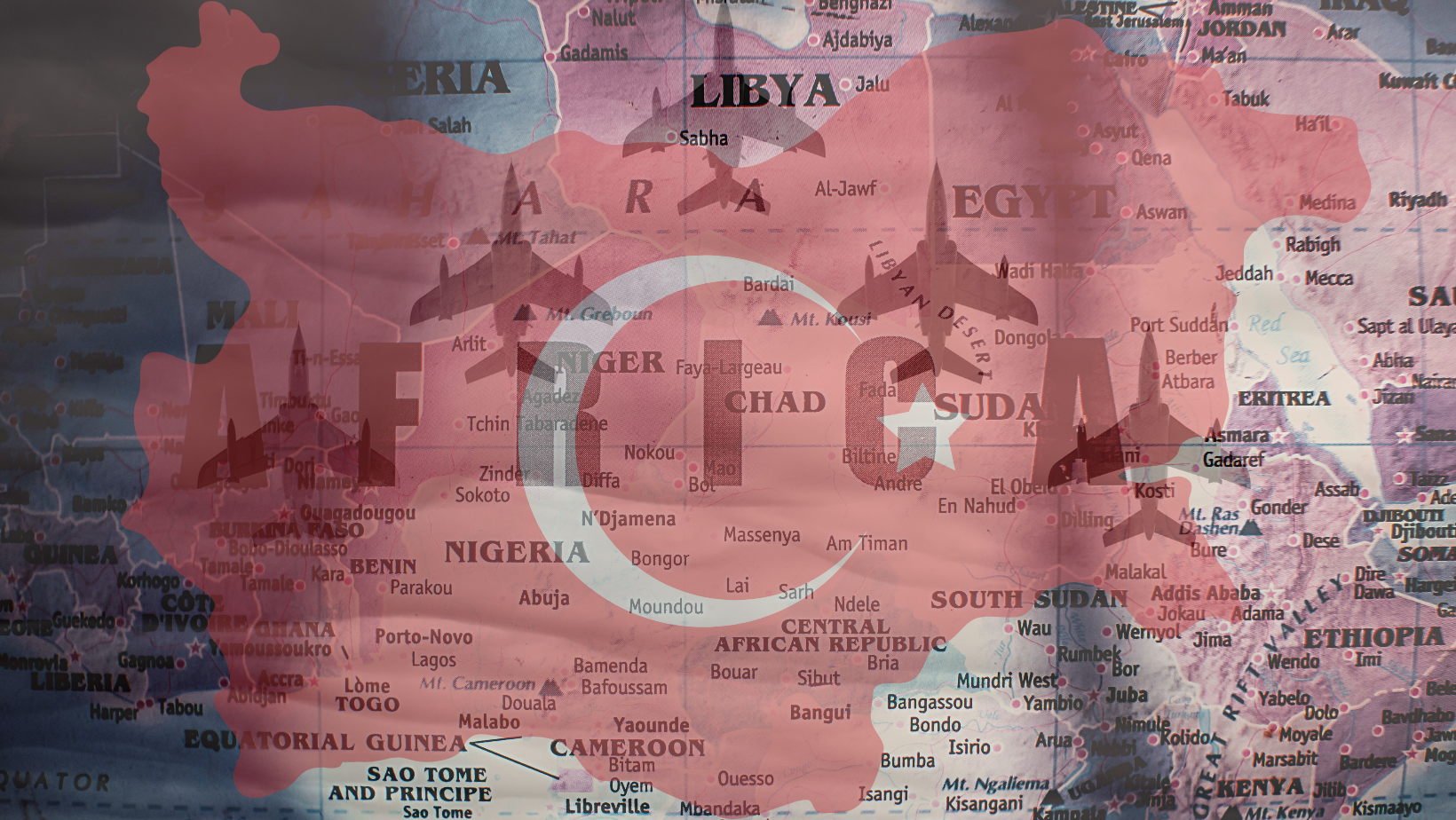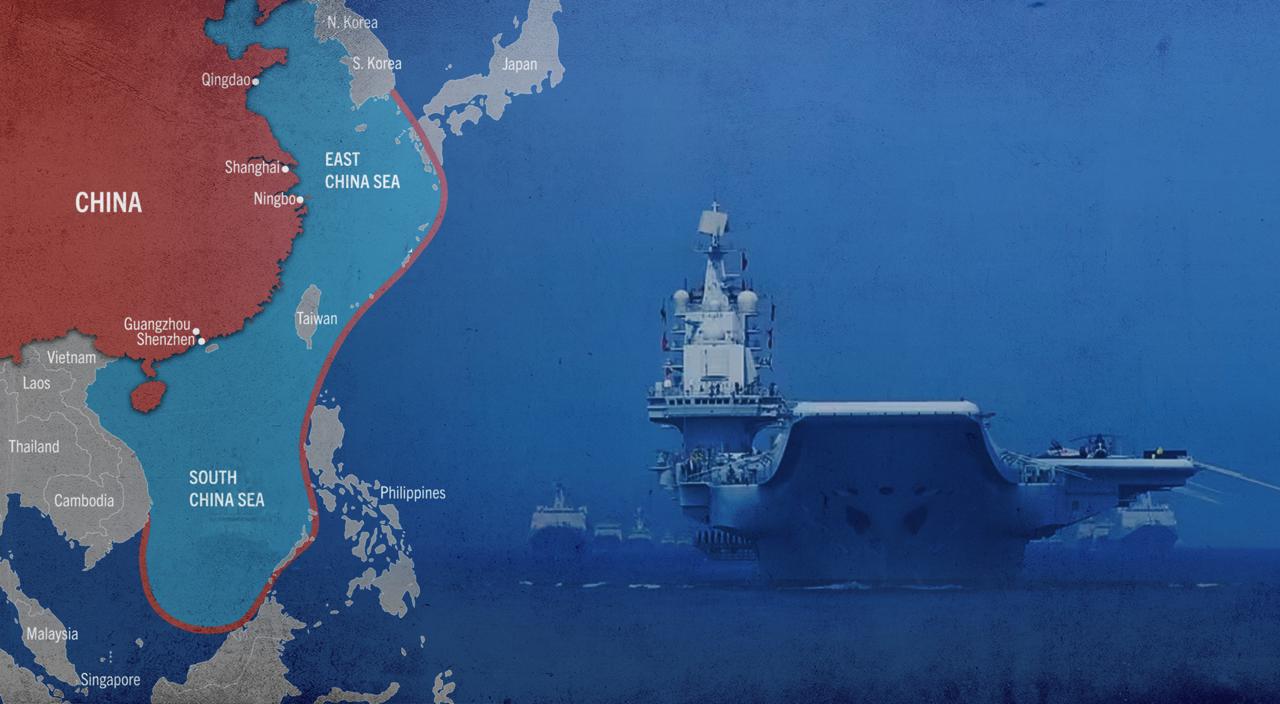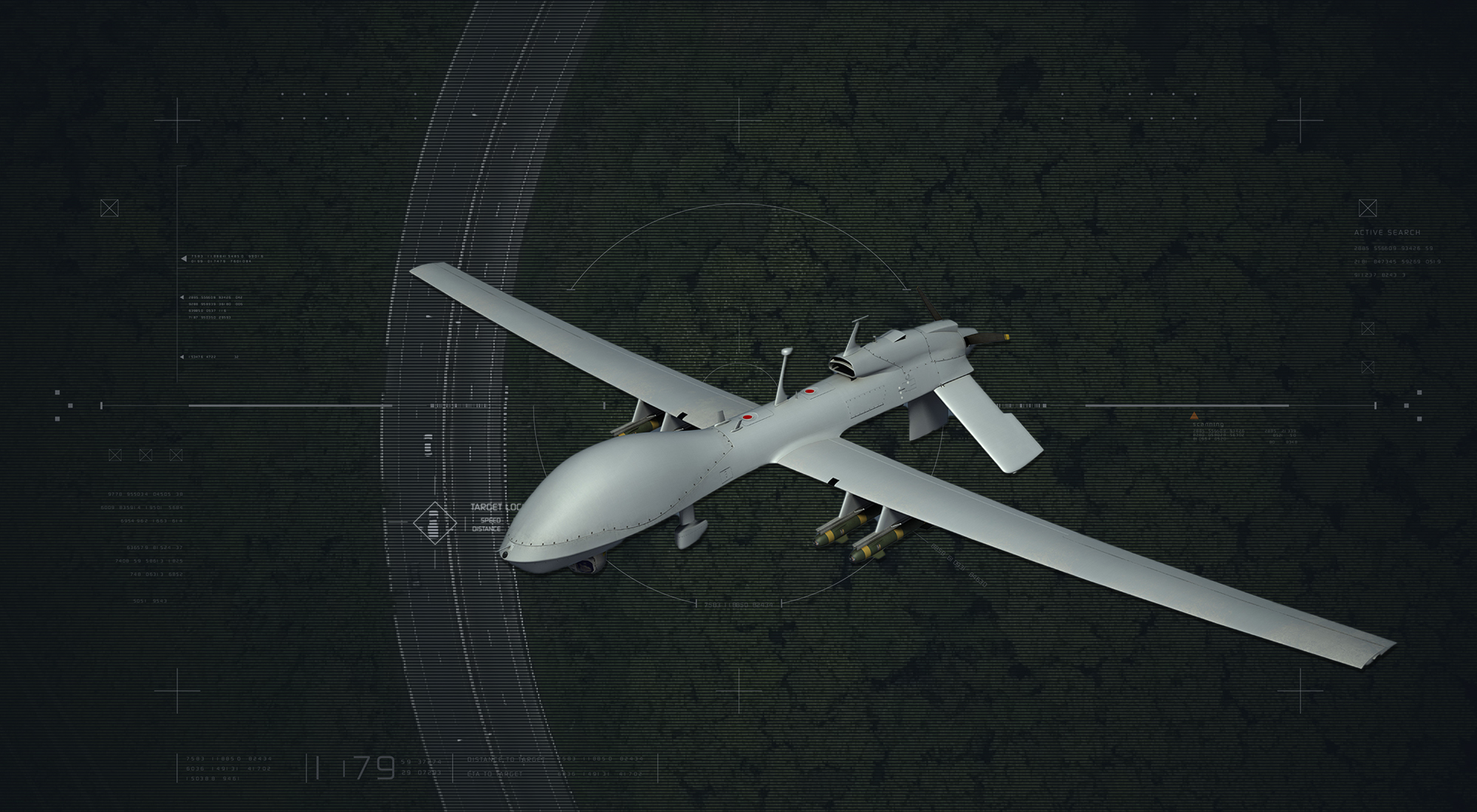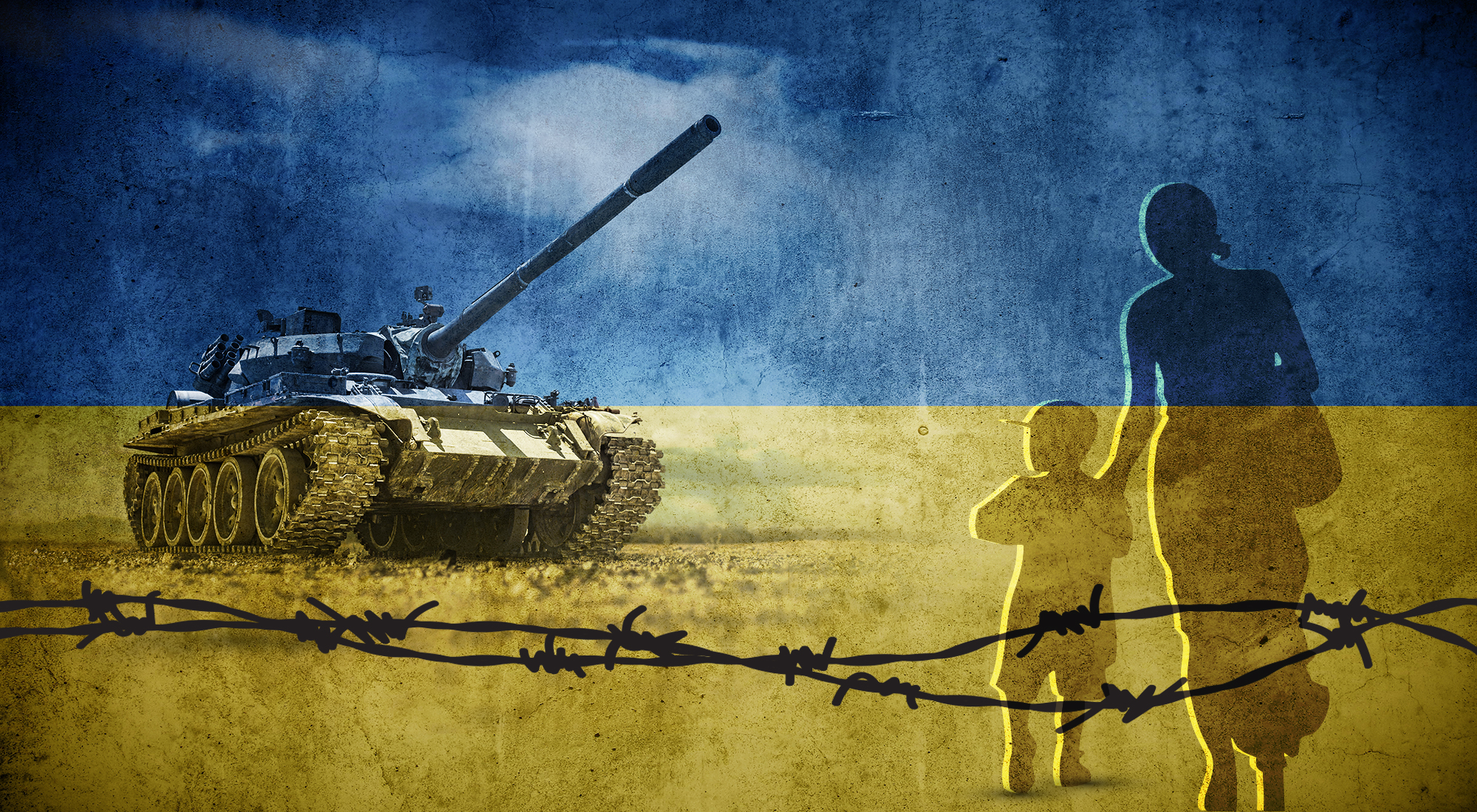Abstract
Turkey is a newcomer to defense sales of indigenously made weaponry. Nevertheless, the country has quickly become an important defense vendor in Central Asia, Eastern Europe, South Asia and Africa. Focusing on the case of Sub-Saharan Africa, this article demonstrates that Turkey’s indigenous defense industry is driven by domestic political dynamics that involve prestige and self-defense. In addition, and increasingly important in terms of arms sales to states south of the Sahara, is the personal enrichment of members and friends of Turkey’s ruling party. Lastly, while arms sales for drones and armored vehicles have increased exponentially over the past few years, the indigenous defense industry in Turkey remains a loss maker, even though Turkish-made equipment has scored significant tactical successes on the battlefield.
Introduction
Turkey was not considered an arms manufacturer and exporter until recently. Through the decade beginning in 2010, however, the tactical successes of Turkish-made armed drones have led to not only a mythos surrounding the power of said drones, but to their skyrocketing sales in places like Ukraine and Morocco. In addition, sales of Turkish armored vehicles, made by several competing Turkish firms, have also taken off, with Kenya, Tunisia and a number of West African states placing large orders. These sales are a testament to (and a spin-off effect of) the very real successes of indigenously produced Turkish weaponry on the battlefields of Syria, Libya and the Caucasus.
This article attempts to explain Turkey’s entry into the extremely competitive, albeit lucrative, world of arms manufacture and sales, explores emerging patterns in terms of both indigenously built weaponry and the location of the purchasing countries, and gauges the sustainability and long-term success of Turkish arms manufacturing and exports. It proceeds as follows. The first part offers a primer on Turkey’s efforts to produce arms domestically. Second, the domestic drivers of Turkey’s indigenous arms industry are explored. The third part offers a case study of arms testing through external deployments and subsequent Turkish arms sales in Sub-Saharan Africa. The article concludes with an analysis of the future trajectory of Turkish arms sales and manufacturing.
Developing an indigenous defense industry
Turkey’s attempts to produce arms date back to the founding of the Republic in 1923, when a battle-ravaged state emerged from the ashes of the Ottoman Empire. The state, led by its founder, Mustafa Kemal Atatürk, adopted autarky largely out of necessity. It mistrusted not only the West, which had nearly destroyed it, but also the Soviet Union, the successor state to Imperial Russia. By 1950, Turkey had drawn closer to the West, particularly the United States, which acted as an offshore balancer to counter Soviet domination of Europe. After joining NATO in 1952, Turkey’s fledgling arms industry went into hibernation as Turkey’s military began to be kitted out with American weaponry.
This overreliance on Western arms came at a price, one Turkey learned well as its supply of arms was cut off during embargoes after the 1971 coup d’etat by the Turkish armed forces, Turkey’s 1974 invasion of Cyprus, and a further military coup in 1980. To better ensure security of weapons supply, the foundations of an indigenous defense industry were built. As Turkey’s economic and political spaces began to open during the Turgut Özal administration, investment flowed to many of the major Turkish arms manufacturers operating today: Turkish Aerospace Industries (TAI) as part of the F-16 Falcon venture in 1984, Nurol Makina as part of the Advanced Infantry Fighting Vehicle project in 1988, Havelsan in military software, Aselsan in military electronics, and Roketsan in missiles. Yet success was by no means quick in coming and importing military equipment – mainly from the U.S. – remained the dominant pattern throughout the 1980s and 1990s.[1]
Patterns in business practices, research and development and funding were also laid in the 1980s, as Turkish manufacturers such as TAI focused on supplying weapons to their primary customer, the Turkish military. In this context the role of Turkish defense manufacturers is no different from most other defense manufacturing states: defense is a monopsony in which the single buyer, the government, is also the regulator that lays down procurement procedures.[2]
Domestic political dynamics and weapons development
Turkey’s domestic political scene has evolved significantly since Özal’s administration. The military has largely been banished to the barracks, and civilian governments have governed Turkey since the late 1990s. Turkey’s current president, Recep Tayyip Erdoğan, has been in power since 2002. Plotting the trajectory of his rule (and that of Turkey) is essential in terms of understanding how the defense industry operates and why its longevity as a powerhouse producer of niche weaponry like drones may be limited.
Erdoğan’s ruling party, the Justice and Development Party (hereafter referred to by its Turkish acronym, AKP), liberalized the economy and pushed through social and political legislation that led to Turkey’s economy growing at one of the fastest rates of any country in the period from 2002 to 2012. Much of this growth, however, mirrored that of the defense industry alone, in that state funding was earmarked for projects such as construction and distributed to AKP-linked business elites. This government-funded largess, in turn, was plowed into other, often questionable projects built by the same AKP stalwarts. This approach worked for a time, given Turkey’s housing, infrastructure and development needs, but it began to run out steam about the time Erdoğan’s popularity began to wane in 2014 with the massive protests that erupted in Istanbul at Gezi Park.
In terms of the defense industry, Turkey’s ruling AKP cadre did see efficacy in growing an indigenous arms industry and therefore spent large amounts of money on, for example, drone development for the sake of national defense as well as the AKP’s desire to fund schemes designed to enrich themselves. As noted, Turkey had suffered the negative effects of arms embargoes by the US and its Western allies in the past in relation to domestic political events. Building up Turkey’s indigenous arms manufacturing sectors would allow the country to “go it alone,” a dream not so different from the ambitions of many other states attempting to re-tool and expand their own indigenous defense industries.[3]
Much of the funding released by various AKP governments went to TAI, which began developing prototypes for its ANKA family of drones. Erdoğan’s son-in-law, Selçuk Bayraktar, helped to design and build what has become Turkey’s most famous arms export, Baykar Defence’s Bayraktar TB2 medium-altitude long-endurance (MALE) unmanned combat aerial vehicle (UCAV), which is capable of remotely controlled or autonomous flight operations. Complementing such developments was financial support for established defense players such as Havelsan, which has developed sophisticated TAI-made Anka-S drone simulators along with combat management systems. Aselsan, for its part, designs, develops and manufactures electronic systems such as the Kalkan, a phased array 3D search and track radar system for low and medium range air defense operations. Along with some flashy, versatile but relatively affordable armored vehicles produced by Otokar, Katmerciler and others, Turkey’s development of advanced weapon systems enabled it to enter the global arms sales market.
Despite a steady growth of funding for the production of indigenous arms, Turkey’s military industrial complex continued to lose money. Its products were almost entirely produced for one buyer – the Turkish military – and it failed to attract overseas buyers until the late 2010s. Nevertheless, the development of a domestic arms industry has benefited the Turkish military. By 2011, 52 percent of the armed forces’ defense equipment was being assembled in-country. In 2014, it was 60 percent.[4] The sale of Turkish-made arms, accelerated by their deployment and successes in various regional conflicts, served to further support Turkey’s rationale for producing indigenous defense capabilities. In that context, and despite underperforming designs and poor planning, the desire for influence and prestige—whether through economic, political or military means—provides great explanatory power for Turkey’s rekindled interest and action in its near abroad. Indeed, for the AKP and many of its loyal supporters, weapons sales coupled with Turkish military actions provided proof that the country was rapidly becoming a great power again.[5] This quest for prestige, one that emanates from the international visibility of Turkey’s presence in places like Somalia, tells us much about Ankara’s alleged “neo-Ottoman” foreign policies and posture.[6]
Deployment and sales
The deployment of Turkish-made drones, armored vehicles and weapons systems to conflict zones in Syria, Libya and the Caucasus in 2019 and2020 gave a significant boost to Turkey’s growing arms industry.[7] Baykar TB2 UCAVs performed particularly well in all three theatres, destroying Chinese and Russian-made weaponry that included main battle tanks, drones and missile systems. Indeed, the successes of Turkish-backed forces using Turkish arms in all three conflicts against adversaries supported by a range of powerful actors, including Russia and Iran, offered evidence that small-to-medium states could successfully develop indigenous arms industries or, at the very least, produce a range of weaponry that filled critical gaps in terms of technology or cost.
But the performance of Turkish arms alone cannot explain the uptick of sales in places like Sub-Saharan Africa. Indeed, international Turkish arms sales have been continually increasing since 2017. This trend can at least partially be explained by the prioritization of international arms sales by Turkey’s government and defense industry. This emphasis on weapons exports is for reasons of international and domestic prestige, as noted earlier, and also to offset the high costs of what remains a loss-making indigenous defense industry.[8]
Turkey’s AKP leadership has made Sub-Saharan Africa a priority since 2011, when it entered Somalia for humanitarian reasons but quickly became a sizeable economic and political actor in the country.[9] Beyond Somalia, Ankara has opened embassies across the African continent and inaugurated Turkish Airlines flights from Istanbul to cities like Mogadishu and Conakry that often suffer from a lack of international connectivity.[10] Erdoğan, first as prime minister and then as president, has repeatedly made personal visits to a large number of Sub-Saharan African states.[11] His personal ties with African leaders such as Senegal’s President Macky Sall and Gambian President Adama Barrow, along with savvy politicking, invitations to Turkey for state visits, and trade shows and conferences in Istanbul and Ankara, have come to define Turkey’s pursuit of its interests on the continent.
Erdoğan’s entourage for his visits to Africa always includes AKP-linked business leaders such as Selim Bora of Summa, a major construction company, or Ismail Demir, the Turkish defense industry czar.[12] These visits often result in the signing of arms sales or construction agreements. For example, Summa has received contracts to build Niger’s international airport in Niamey as well as Senegal’s 50,000-capacity Diamniadio Olympic Stadium.
In terms of arms sales, Ghana purchased 36 Otokar Cobras over the course of 2018-2019. In addition, Burkina Faso’s army purchased 40 Cobra IIs in 2018, while Senegal purchased 25 Nurol Makina-manufactured Ejder Yalcin off-road vehicles and six Ejder Toma riot control trucks.[13] Mauritania reportedly also obtained Turkish-made armored vehicles, likely Otokar Cobras, as have Rwanda and Nigeria.[14] Turkey has also exported hundreds of small arms to Burkina Faso, Ghana and Cameroon.[15] In East Africa, Otokar won a $110m contract to equip the Ugandan armed forces with 100 armored vehicles in late 2020.[16] This followed on the heels of Kenya’s order for 118 four-wheel drive personnel carriers from Katmerciler.[17] The funding for such sales is largely coordinated between the buying country, the Defense Industry ministry in Ankara and Türk Eximbank. The contract for Katmerciler Hizir armored personnel carriers, for instance, was reportedly financed by an export credit facility guaranteed by the bank.[18]
Turkish drone sales were non-existent (at least publicly) in Sub-Saharan Africa until recently. The fillip from the Libya and Caucasus campaigns, coupled with armed drone purchases by several North African states such as Tunisia and Morocco, mean that buyers south of the Sahara is likely to increase. Ethiopia’s government, for example, reportedly purchased Bayraktar TB2 drones via a recent agreement that could also include spare part guarantees and training.[19] The embattled government in Addis Ababa is currently desperate to turn the tide against a growing rebel movement that began in the north of the country. The civil conflict has led many of Ethiopia’s traditional arms sellers, such as France, to refuse to deliver weapons. Given these constraints, Turkey’s arms industry may fill a critical gap in Sub-Saharan Africa as states look to purchase among the best available armed drones at a reasonable price. As inter-state mistrust spreads across the continent from the Gulf of Guinea and Cote-d’Ivoire’s maritime border dispute with Ghana to the Indian Ocean and Kenya’s offshore dispute with Somalia, Turkish-made drones used for intelligence, surveillance, and reconnaissance or more lethal operations may offer a viable option, particularly if other arms manufacturing states impose embargoes like those currently in place against Ethiopia.
Conclusion
The arms sales listed above are by no means comprehensive, nor have the defense deals signed by Kenya and Turkey or Angola and Turkey been completed. Problems in purchasing countries can impede the realization of deals. For instance, Tunisia’s multi-million-dollar orders for Turkish drones and radar systems have been delayed for years by difficulties on account of funding issues and domestic political squabbles. The outcome of Havelsan’s attempts to equip Senegalese patrol boats with its combat management systems remain unclear, and the reported attempt of the Turkish government to sell arms to Rwanda through its ambassador and the Aselsan, Havelsan and Otokar companies have yet to bear fruit, though Kigali is reportedly interested in Turkish UCAVs.[20] Turkey may have reportedly sold drones to Ethiopia, but what that represents in terms of actual sales and the transfer of hard currency from Ethiopia to Turkey remains uncertain. Kenya’s defense forces have questioned the decision to buy Turkish-made mine-resistant personnel carriers on account of safety concerns, further underscoring the tenuous nature, at times, of arms sales.
In conclusion, neither the numbers, types of weaponry nor monetary value of Turkish arms sales to Sub-Saharan Africa should be overstated. Turkey may be expanding its defense relations with states stretching from Ukraine to Morocco to Pakistan, but its indigenous arms industry is plagued by weak planning, loss-making products, and underwhelming performance with the exception of certain niche arms such as UCAVs. Turkey’s drones and armored vehicles, nevertheless, seem to have the right combination of price, capabilities and reputation that may attract further interest from militaries in Africa, particularly when they wish to avoid scrutiny over the weapons’ usage. While these sales on their own will not produce a strong and profit-making Turkish defense industry, they may further establish Turkey’s international role as the maker of high quality, affordable, niche weaponry.
[1] Bağcı, H., & Kurç, Ç. (2017). Turkey’s strategic choice: buy or make weapons? Defence Studies, 17(1), 38-62: 43.
[2] Kovacic, W. E., & Smallwood, D. E. (1994). Competition policy, rivalries, and defense industry consolidation. Journal of Economic Perspectives, 8(4), 91-110: 101.
[3] Rossiter, A., & Cannon, B. J. (2019). Making arms in India? Examining New Delhi’s renewed drive for defence-industrial indigenization. Defence Studies, 19(4), 353-372.
[4] Bağcı, H., & Kurç, Ç. (2017). Turkey’s strategic choice: buy or make weapons? Defence Studies, 17(1), 38-62: 44.
[5] Cagaptay, S. (2013). Defining Turkish power: Turkey as a rising power embedded in the Western international system. Turkish Studies 14(4): 797-811. https://doi.org/10.1080/14683849.2013.861110. See also, Celik, O. (2016). Turkey’s great transformation: An influence-multiplier for the future of Europe and beyond. Rising Powers Quarterly 1(2): 35-53.
[6] Further reading on the limits of Turkey’s neo-Ottoman attempts to project power, see Donelli, F. & Cannon, B. J. (2021). Power projection of Middle East states in the Horn of Africa: linking security burdens with capabilities. Small Wars & Insurgencies, 1-22.
[7] For more on Turkey’s military interactions with Africa, see Cannon, B. J. (2021). Turkey’s military strategy in Africa. In in Eyrice, E. & Tepeciklioglu, A. (eds). Turkey in Africa: A New Emerging Power? Routledge: 127-143.
[8] Kurç, Ç. (2017). Between defence autarky and dependency: the dynamics of Turkish defence industrialization. Defence Studies, 17(3), 260-281: 270-272.
[9] Cannon, B. J. (2016). Deconstructing Turkey’s Efforts in Somalia. Bildhaan: An International Journal of Somali Studies, 16(1): 98-123.
[10] Turkey had 12 embassies in Africa in 2009. It now has 43. Turkish Airlines operates flights to 44 destinations across the continent in 2021. This number dropped from 59 in 2019 given the effects of the COVID-19 pandemic.
[11] As of early 2020, Erdoğan n had made 49 trips to Africa and visited 28 African states. TRT World. (2020, January 27). What makes Erdogan’s Africa tour so significant? https://www.trtworld.com/africa/what-makes-erdogan-s-africa-tour-so-significant-33263
[12] Demir, for example, accompanied Erdoğan on his tour of Angola, Nigeria and Togo in September 2020. Africa Intelligence. (2020, October 10). Erdogan tours Gulf of Guinea with his military procurement team. https://www.africaintelligence.com/central-and-west-africa_diplomacy/2021/10/15/erdogan-tours-gulf-of-guinea-with-his-military-procurement-team,109698781-gra
[13] Africa Intelligence. (2020a, January 8). Koc and Nurol target the land armies. https://www.africaintelligence.com/central-and-west-africa_business/2020/01/08/koc-and-nurol-target-the-land-armies,108388572-bre
[14] de Cherisey, E. (2019, November 13). Ghana Army shows new Otokar Cobra vehicles. Jane’s Defence Weekly. https://www.janes.com/article/92548/ghana-army-shows-new-otokar-cobra-vehicles, and Defence Web. (2019, January 23). Otokar targets African growth. Defence Web. https://www.defenceweb.co.za/land/land-land/otokar-targets-african-growth/.
[15] UNROCA. (2018). Turkey 2018: UNROCA Original Report. New York: United Nations Register of Conventional Arms. https://www.unroca.org/turkey/report/2018/.
[16] Africa Intelligence. (2020, November 18). Museveni buys $110m of armoured vehicles from Turkey’s Otokar. https://www.africaintelligence.com/eastern-and-southern-africa_business/2020/11/18/museveni-buys-dollars110m-of-armoured-vehicles-from-turkey-s-otokar,109621929-art
[17] Bekdil, B. E. (2021, January 27). Kenya orders 118 armored vehicles from Turkey. Defense News. https://www.defensenews.com/land/2021/01/27/kenya-orders-118-armored-vehicles-from-turkey/
[18] Africa Intelligence. (2021, February 2). Katmerciler’s armoured vehicles take the police and army by storm with Erdogan’s backing. https://www.africaintelligence.com/eastern-and-southern-africa_business/2021/02/01/katmerciler-s-armoured-vehicles-take-the-police-and-army-by-storm-with-erdogan-s-backing,109639095-art
[19] Coskun, O., Spicer, J., Toksabay, E. (2021, October 14). Turkey expands armed drone sales to Ethiopia and Morocco – sources. Reuters. https://www.reuters.com/world/middle-east/turkey-expands-armed-drone-sales-ethiopia-morocco-sources-2021-10-14/
[20] Africa Intelligence. (2021, September 27). Turkish defence industry out to seduce Kigali. https://www.africaintelligence.com/eastern-and-southern-africa_business/2021/09/27/turkish-defence-industry-out-to-seduce-kigali,109694117-art; see also, Africa Intelligence. (2021, October 7). Rwandan army eyes Turkish drones for Mozambique. https://www.africaintelligence.com/eastern-and-southern-africa_business/2021/10/07/rwandan-army-eyes-turkish-drones-for-mozambique,109696855-bre








